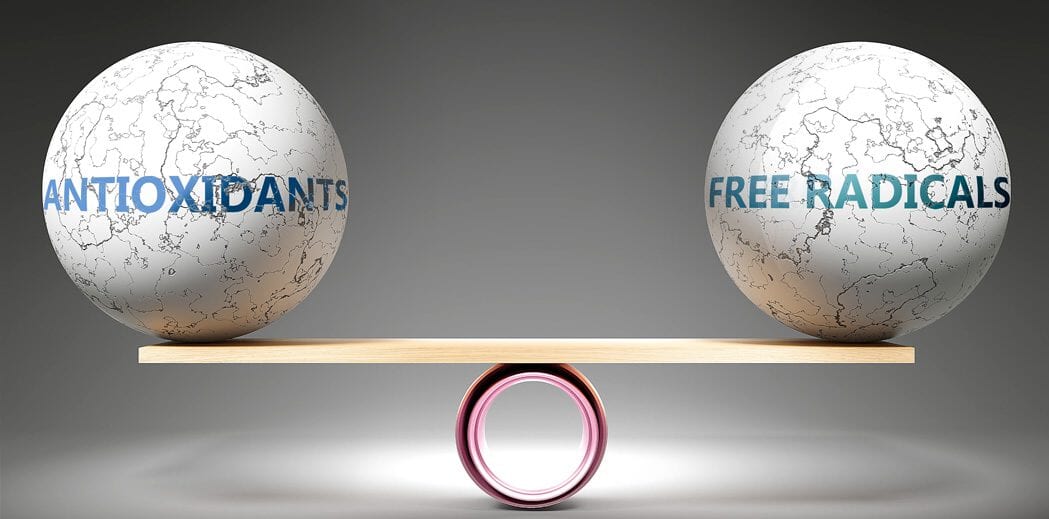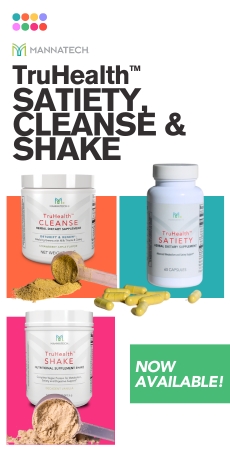
Oxidative stress and how to minimize its effects
What comes to mind when you hear the words oxidative stress? If you’re thinking oxygen, give yourself a high five, you’re on the right path, but think less organic. In fact, it’s not good for you at all. We’ve all come to understand how stress can affect us mentally and physically, but molecularly, not so much. Thus, we thought we’d explore the topic. In this blog, we’re talking about oxidative stress, how it happens, why, and the best ways to avoid help our bodies manage it.
What’s oxidative stress?
Free radicals are molecules with unpaired electrons, which makes them unstable and reactive (looking to create bonds with other molecules)4. Oxidative stress occurs when there’s an imbalance between the production and accumulation of free radicals in cells and tissues and the antioxidants to counteract them1.
But what can trigger oxidative stress? Everything2. Environmental exposure, diet, and physiology can enormously impact the oxidative process. It’s totally unavoidable and undetectable, especially in our tech-friendly, pollutant-rich culture. Over 75,000 chemicals have been introduced to our environment since 19302. Unfortunately, our bodies can’t completely avoid the toxins of today’s environment. However, there’s a way to fight back.
The anti-free radicals.
Antioxidants are a defense mechanism against the toxins we unknowingly inhale, digest, or expend. Your body benefits from consuming food containing vitamins A, C, and E to provide this benefit, like fruit and veggies. Both contain antioxidants made from the phytochemicals that they possess. What are phytochemicals? The word phyto is an Ancient Greek word meaning plant. Plant chemicals. They can help fight the oxidative stress your body encounters everyday2. All three nutrients are either fat-soluble (vitamins A and E) or water-soluble (vitamin C) vitamins. Fat and water-soluble vitamins provide some of the best antioxidant protection.
Want to know more about antioxidants? We’ve got your back. We’ll break down easy and achievable ways to get the protection necessary to help fight against oxidative stress.
Vitamin A – This antioxidant guards our cells against icky environmental factors and is important in supporting our vision, cell function, and immunity7. Foods such as spinach, dairy products, and liver are top consumption choices when boosting your vitamin A intake. If you aren’t a fan of spinach and liver or are lactose intolerant, there is another way to get in your vitamin A. Beta Carotene. A nutrient found in green leafy veggies and carrots that your body readily converts into vitamin A7. While your best go-to source for Vitamin A is food such as your leafy greens, another option is taking a supplement. The recommended daily amount of Vitamin A is 900 micrograms (mcg) and 700 micrograms (mcg) for men and women, respectively.
Vitamin C – Vitamin C also has antioxidant properties that can help safeguard your cells against free radicals. The body can’t produce vitamin C, yet it can be absorbed through what you eat. Berries, citrus fruits, and vegetables such as broccoli, spinach, and Brussels sprouts all include ample amounts of this vitamin8. The great thing about vitamin C is that most people consume adequate amounts of it daily. But vitamin C supplements are available in case you don’t ingest enough. Though they aren’t a proven substitute for vitamin C received through your diet8. The recommended daily amount for vitamin C is 90 milligrams (mg) for adult men and 75 milligrams (mg) for adult women.
Vitamin E – Vitamin E contains antioxidants in the food or oils we cook with. Canola oil, olive oil, margarine, and almonds contain high amounts of vitamin E, as well as meats, leafy greens, and fortified cereals9. Supplement forms of vitamin E are available in capsules or drops. The Recommended daily amount for adults is 15 milligrams (mg)9.
Always remember, if you have any hesitation, consult your doctor; it can help give you greater peace of mind about the best nutrient option for you.
The connection between diet and oxidative stress.
Scientific studies have proven a link between the consumption of high-fat (fatty meats), carbohydrates (bread, noodles, popcorn, cookies), and elevated oxidative stress. These foods can decrease antioxidant defenses within your body. A nutritious diet, including fatty acids (olive oil) and fiber (oatmeal) can help maintain cell and tissue health.
Everyday stressors can impact your diet, which in turn can encourage the occurrence of oxidative stress. Cortisol is a stress hormone secreted from the adrenal glands of your brain and released throughout your body10. While the stress hormone intends to help your body brace for impact or intense physical situations, too much of it over a long period can be a bad thing.
Elevated cortisol activates ghrelin, a hormone known to increase appetite and cravings for foods high in sugar and fat10. With the right tools, coping with everyday stressors can be manageable and doable. Click here to learn more about how you can break the cycle of stress.
How to reduce oxidative stress one step at a time.
Avoiding oxidative stress today may be challenging, but minimalizing it is definitely possible. Here are a few tips that can help reduce the effects of oxidative stress:
• Eat more antioxidants – Antioxidants are the first line of defense against environmental toxins, helping to multiply healthy cells while saying bye-bye to the free radicals that are up to no good.
• Put out that cigarette – There are two chemical phases of a cigarette, the tar, and gas phases, each heavy in free radicals11. Smokers are considered to have three things working against them in terms of avoiding oxidative stress:
1.) They habitually smoke and are less likely to excercise.
2.) Have poorer eating habits, reducing their antioxidant intake.
3.) More likely to consume alcohol.
• Avoid alcohol – Alcohol consumption can cause the body to produce small, highly reactive, oxygen-baring molecules that can alter your body’s defense mechanisms. It reduces antioxidants and accelerates the formation of free radicals, potentially resulting in cell damage12.
• Becoming products of our environment – We’re constantly exposed to various chemicals, most times through no fault of our own. Increasing our exposure to environmental factors can reduce the number of antioxidants and boost the presence of free radicals.
• Stress less – Long-term cortisol production can trigger an appetite-increasing hormone called ghrelin, which can cause you to crave foods high in sugar and fat. These same ingredients are attributed to increased oxidative stress within your body. Whoa there. We’re not encouraging you to go cold turkey on sugars and fats. But dialing back on both couldn’t hurt, especially when it comes to cell health.
• Better sleep – A restless night can not only make you feel sluggish and moody, but it can also generate stress. That’s right. A poor night’s sleep is another way to trigger cortisol, increasing your cravings for junk food and increasing oxidative stress levels. Looking for blissful “z’s” but unsure where to start? Click here for additional info on how to get a better night’s sleep.
What you eat: The key to combating oxidative stress.
As you’ve read, there are foods that can combat oxidative stress. But what dietary strategies are best for boosting our antioxidant intake? Here are a few tips that can help:
• Say “no” to high fat and carbs – High fat and carbs help elevate oxidative stress by reducing our antioxidant defenses13. The lower the antioxidants in your body, the more likely free radicals are to take hold. Show the free radicals they aren’t welcome by cutting back on fatty and carb-rich foods such as french fries, pizza, and cereal with sugar (just to name a few).
• Mediterranean food is an antioxidant gold mine – Studies have shown that the Mediterranean diet benefits your antioxidant levels and overall health because of its emphasis on plant consumption.
• Polyphenols are your friend – Polyphenols are an antioxidant naturally found in fruits, veggies, cereals, and beverages like red wine, one cup of tea, or coffee.14 Grape skin, cranberries, blueberries and peanuts are good sources of resveratrol, a polyphenol15.
When it comes to oxidative stress and free radicals, there’s nothing free about it. Exposure to environmental factors and high-fat, high-carb diets come at a huge cost. That’s why antioxidants are important. They nourish our body and protect our innermost molecular structure that defines who we are and how we’ll fare in the future.
Sources
1 Oxidative Stress: Harms and Benefits for Human Health, National Library of Medicine.
2 Should you take antioxidants?, Dr. Steve Nugent, PsyD.
3 Antioxidants, Harvard T.H. Chan School of Public Health.
4 Understanding antioxidants, Harvard Health Publishing.
5 Electrons in Biology, National Library of Medicine.
6 Why you should care about free radicals, Cleveland Clinic.
7 Vitamin A, Mayo Clinic.
8 Vitamin C, Mayo Clinic.
9 Vitamin E, Mayo Clinic.
10 Stress and Health, Harvard T.H. Chan School of Public Health.
11 Cigarette Smoking and Oxidative Stress, National Library of Medicine.
12 Alcohol, Oxidative Stress, and Free Radical Damage, National Institute on Alcohol Abuse and Alcoholism.
13 Dietary Regulation of Oxidative Stress, National Library of Medicine.
14 Plant polyphenols as dietary antioxidants in human health, National Library of Medicine.
15 Health benefits of resveratrol – and should you take it? Cleveland Clinic.



















